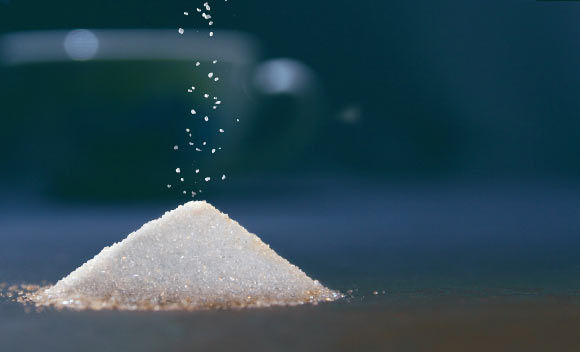Obesity and its associated metabolic diseases have had devastating health consequences on modern society. New research from the University of Colorado Anschutz Medical Campus links these diseases with the activation of a major survival pathway developed in nature to help animals prepare for times of scarcity.

The fructose survival hypothesis proposes that obesity and metabolic disorders may have developed from over-stimulation of an evolutionary-based biologic response (survival switch) that aims to protect animals in advance of crisis. Image credit: Günther.
“This is an in-depth review on a hypothesis that puts nature at the center of weight gain, examining how fructose works differently than other nutrients by lowering active energy,” said University of Colorado’s Professor Richard Johnson.
“We determine a recently discovered function of fructose in survival that stores fuel in case resources become scarce. This is known as the ‘survival switch’.”
Fructose is a simple sugar that is the primary nutrient in fruit and honey.
However, in the Western diet, its main source is table sugar (sucrose), which consists of fructose and glucose bound together, and high fructose corn syrup, which consists of a blended mixture of fructose and glucose, often with slightly higher concentrations of fructose as testing has suggested humans prefer slightly more fructose as it is sweeter than glucose.
Today these ‘added sugars’ account for approximately 15% of overall energy intake, with some groups ingesting as much as 20% or more.
Fructose is also generated in the body from glucose. This occurs when glucose levels (i.e. the substrate) are excessive, such as in diabetes, following the ingestion of high glycemic carbohydrates, and by high carbohydrate diets.
Professor Johnson and colleagues posited that fructose works differently than other nutrients by lowering active energy, damaging mitochondria.
Their results show that fructose stimulates food intake and lowers resting energy metabolism, much like an animal preparing to hibernate.
Further, the results show that the administration of fructose can lead to weight gain, insulin resistance, elevated blood pressure and fatty liver among a host of other metabolic-related issues.
“This work puts together in one place the full argument for how a particular carbohydrate, fructose, might have a central role in driving obesity and diabetes,” Professor Johnson said.
“This is a very exciting, new hypothesis that unites other hypotheses to point to the specific role fructose plays in the onset of obesity.”
“And we can trace it back to our ancestors, as well as learn from hibernating animals, exactly how fructose causes this ‘switch’ within us.”
The results appear in the Philosophical Transactions of the Royal Society B.
_____
Richard J. Johnson et al. 2023. The fructose survival hypothesis for obesity. Phil. Trans. R. Soc. B 378 (1885): 20220230; doi: 10.1098/rstb.2022.0230







